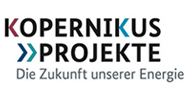P2X
Education and transferring Kopernikus knowledge
P2X is committed to capacity building. This means knowledge from today’s research will reach young aspiring scientists from tomorrow. Specifically, findings from P2X and its sister projects are to be made accessible to learners so that the most important insights can be widely recognized as a foundation in people's minds.

How long will it take until today‘s research becomes study material? Too long for the energy transition. The Kopernikus projects don't want to wait. Their declared aim is ultimately to push ahead with the energy transition. However, this is a highly complex task involving many different disciplines and stakeholders. Getting it right is a bit like asking strangers to completely rebuild a train whilst travelling at full speed and lay new tracks for it but without stopping. After all, the reliability of supply must be always guaranteed.

How does it affect the teaching materials? The train in question - the energy system - is in motion, but must change without coming to a standstill or derailing. This is why science and industry collaborate very closely at Kopernikus in order to keep the path from theory to practice short and at the same time to test how well the theory works in practice. Yet, the knowledge generated by research is initially only available to those who are involved. Rightly so, since the obtained results are new, volatile and need to be reviewed thoroughly. However, this is not enough for the Kopernikus projects, which is why capacity building plays a major role in the final project phase in the context of transfer. To ensure that in the near future, when the energy system gradually changes tracks, future specialists already know what they are dealing with, the Kopernikus project P2X is in charge of designing educational materials and programmes. Of course, knowledge from the sister projects is also incorporated in many places.
P2X Summer School 2025: a resounding success
Following previous runs in 2020, 2021 and 2022, the P2X Summer School 2025 took place for the fourth time. Once again, P2X partner WWF took the lead in organising the event. This multi-day intensive workshop provided participants with the opportunity to engage deeply with one of the key technologies of the energy transition: Power-to-X.
If you would like to learn more about how participants experienced the P2X Summer School, you can read a retrospective from their perspective here (in German).
Another run of the P2X Summer School is planned for 2026, as part of the Kopernikus’ final year. Dates and further details will be published here in good time.
P2X Lecture Series: Second Round in Full Swing
P2X partner Provadis is organising the digital offering of the ten-part P2X lecture series, which is provided for the second time in the winter semester 2025/2026. Although the topics are the same as last year, the content has of course been updated. In concrete terms, this means that students who participate will learn about the latest developments in research within a year.
As in the previous year, people of all ages, with or without prior knowledge, are invited to listen in free of charge and broaden their horizons. The only requirements are: 1. An understanding of English, as this is the language of instruction. 2. An interest in technical depth. 3. Registration for the respective event (this is also possible for individual events and even shortly before the respective date). Interested parties can find the digital registration form and further information here at Provadis.
A note for participants who wish to join from outside Europe: Direct registration is not possible. Please contact P2Xlectureseries@provadis-hochschule.de by email.
The lectures take place every Thursday from 5:30 to 7:00 pm CET. Here is a concise overview of all dates for the current second P2X lecture series:
-
6 November 2025: Introduction to Power-to-X and Synthetic Fuels: the path to climate-neutral energy systems
-
13 November 2025: Power-to-X and electrolysis – Turning Steam into Rocket Fuel
-
20 November 2025: Are e-fuels a beneficial alternative to conventional fuels?
-
27 November 2025: Fire and Ice: Hydrogen and carbon dioxide as key components at the intersection of energy and chemistry
-
4 December 2025: Flexible Load Operation of industrial plants for the integration of renewable energies
-
11 December 2025: Infrastructure, networks and availability of resources
-
18 December 2025: The necessity of PtX in a sustainable German energy system – A system perspective and site analyses
-
15 January 2026: Towards a sustainable Power-to-X economy – the role of international trade and reliable frameworks
-
22 January 2026: Power-to-X: Impact on society/acceptance
-
29 January 2026: Green electrons for complex molecules: organic electrosynthesis as an emerging P2X technology
Recordings of the first P2X lecture series (winter semester 2024/2025) are available in the folders below. The recordings of the second round will also be uploaded there shortly after each respective event.
Lecturers: Prof. Dr. Kirstin Hebenbrock, Prof. Dr. Peter Manshausen/both Provadis
Click here for the recording (Provadis YouTube channel).
We kindly ask you to be patient concerning the announced PDF download. We are currently checking the legal situation.
Lecturer: Prof. Dr. Walter Leitner/MPI
Click here for the recording (Provadis YouTube channel).
We kindly ask you to be patient concerning the announced PDF download. We are currently checking the legal situation.
Lecturer: Dr. Lambertus G. J. (Bert) de Haart/Forschungszentrum Jülich/RWTH Aachen
Click here for the recording (Provadis YouTube channel).
We kindly ask you to be patient concerning the announced PDF download. We are currently checking the legal situation.
Lecturer: Prof. Dr. Ralf Ehret/Provadis
Click here for the recording (Provadis YouTube channel).
We kindly ask you to be patient concerning the announced PDF download. We are currently checking the legal situation.
Lecturer: Dr. Eike Cramer/RWTH Aachen
Click here for the recording (Provadis YouTube Channel)
We kindly ask you to be patient concerning the announced PDF download. We are currently checking the legal situation.
Lecturer: Frank Graf/DVGW-Ebi, Dorothea Müschenborn/Max Planck Institute for Chemical Energy Conversion; this session is a guest contribution of the Hydrogen Flagship Projects.
Click here for the recording (Provadis YouTube Channel).
We kindly ask you to be patient concerning the announced PDF download. We are currently checking the legal situation.
Lecturer: Dr. Franz Bauer/OTH Regensburg
Click here for the recording (Provadis YouTube Channel).
We kindly ask you to be patient concerning the announced PDF download. We are currently checking the legal situation.
Lecturers: Ulrike Hinz/WWF, Heino von Meyer/PtX Hub, Veronica Vukasovic/GIZ PtX Hub Chile, Uruguay
Click here for the recording (Provadis YouTube Channel).
We kindly ask you to be patient concerning the announced PDF download. We are currently checking the legal situation.
Lecturer: Dr. Peter Holtappels/KIT
Click here for the recording (Provadis YouTube Channel).
We kindly ask you to be patient concerning the announced PDF download. We are currently checking the legal situation.
Lecturers: Irina Rau, Jan Hildebrand/both IZES
Click here for the recording (Provadis YouTube Channel).
We kindly ask you to be patient concerning the announced PDF download. We are currently checking the legal situation.
Further P2X educational content that is already available
Kopernikus partner WWF Germany has developed a virtual reality experience that playfully explains Power-to-X technologies and their use in a fictitious future. Interested players can explore the interactive game using VR goggles, but can also view the content online. Find out more (in German) here.
Kopernikus partner WWF has developed self-learning content for the P2X project on the topic of "Hydrogen for the energy transition and climate protection - Power-to-X". It is available free of charge in the WWF Academy. Click here to go directly to the e-learning programme (in German).


